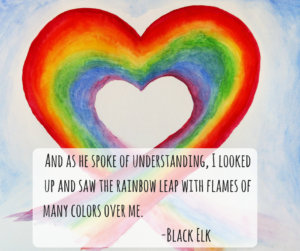 I remember being in middle school and how easy it was to for me to keep my writing organized. I had this blue and white composition notebook which I wrote in every night. Middle school me filled that whole notebook with a story that eventually would evolve into a book I started writing in the beginning of high school.
I remember being in middle school and how easy it was to for me to keep my writing organized. I had this blue and white composition notebook which I wrote in every night. Middle school me filled that whole notebook with a story that eventually would evolve into a book I started writing in the beginning of high school.
The more ideas I had made organizing my writing more difficult than it already was. Of course I had journals, but I’d end up only writing a couple pages and forget about the journal and let it collect dust in my drawer. I’d write during passing time in school on sheets of paper which would either end up staying up in my school notebooks or in my pencil case. I could be turning to a new page in my calculus notebook and  then suddenly stumble upon a future chapter of my story. Or, I could be digging around in my backpack for a pencil and instead of my led pencil, I find three folded up pieces of paper of chapter ideas.
I can’t quite say if this disorganization is because I’m forgetful or if this is just one of the perks of being a young writing. If I really wanted to put my disorganization to blame, I could pin the blame on juggling school and writing. The most organized with my writing I have ever been was when I put my ideas in piles of which story they belonged to. My disorganization hasn’t always been an annoyance. The first book that I wrote and self-published was written completely in random notes I’ve written in between classes. But, when you’re working on a chapter for a novel and can’t remember where you placed your notes, that becomes a problem.
The thing is, every writer has their own process. Mine involves writing chapter ideas on loose leaf paper and then losing the paper in my backpack only finding them randomly. Some may use notebooks or journals, binders, folders or even keep ideas written on their phones. I can’t say that there is an ideal way to organize for writers. Everyone is entitled to their own opinion. I can’t stand in the snack aisle at the store and preach about how Nacho Cheese Doritos are the superior Doritos. It’s the same thing with writing. I can’t march into someone’s office and demand that they write a certain way because it’s the superior way to write.
In school, we were taught what the teachers would call the right way to write. We had to do the writing process in their way and not our own. You feel connected to your writing when you create your own writing process. I certainly do. In the end, it doesn’t so much matter how you organize your writing or what process you have.
I could send email blasts and direct messages in all caps to all my favorite authors saying: “HOW DO YOU DO IT?!” If I did do that however, my writing process wouldn’t necessarily be my process. It would be whoever’s process I used. Not everyone else writes the same either. So, yes, I’m disorganized. But, I somehow, out of some random act of God, create something I am proud of. Maybe disorganization does help after all. But, who am I to say. I don’t stand in aisle at the store preaching about what Doritos to buy.
Molly Baumgardner is a young writer and cat enthusiast. You can read her work at https://www.wattpad.com/user/awesomewriter65
Enjoy this writing advice and want more content like it? Check out the classes Cat gives via the Rambo Academy for Wayward Writers, which offers both on-demand and live online writing classes for fantasy and science fiction writers from Cat and other authors, including Ann Leckie, Seanan McGuire, Fran Wilde and other talents! All classes include three free slots.
If you’re an author or other fantasy and science fiction creative, and want to do a guest blog post, please check out the guest blog post guidelines.






 Treading the waters of diversity is tricky because we never want to disrespect the struggles that women, people of color, the LGBTQ community, or others have had to endure. As writers, we often want to include people like this in our stories because their stories are powerful and can make a difference. This sometimes manifests itself as ‘the gay friend’ or ‘the black friend’ or if you’re really batting for a home run ‘the gay black friend’. This character is great for diversity. He shows that those people exist and that we shouldn’t be afraid of them. But over time, if we see the gay black friend over and over it creates a subliminal message that all gay black men behave a certain way, and that can damage the community. I think we should allow those characters to break the mold and keep it to themselves.
Treading the waters of diversity is tricky because we never want to disrespect the struggles that women, people of color, the LGBTQ community, or others have had to endure. As writers, we often want to include people like this in our stories because their stories are powerful and can make a difference. This sometimes manifests itself as ‘the gay friend’ or ‘the black friend’ or if you’re really batting for a home run ‘the gay black friend’. This character is great for diversity. He shows that those people exist and that we shouldn’t be afraid of them. But over time, if we see the gay black friend over and over it creates a subliminal message that all gay black men behave a certain way, and that can damage the community. I think we should allow those characters to break the mold and keep it to themselves.
